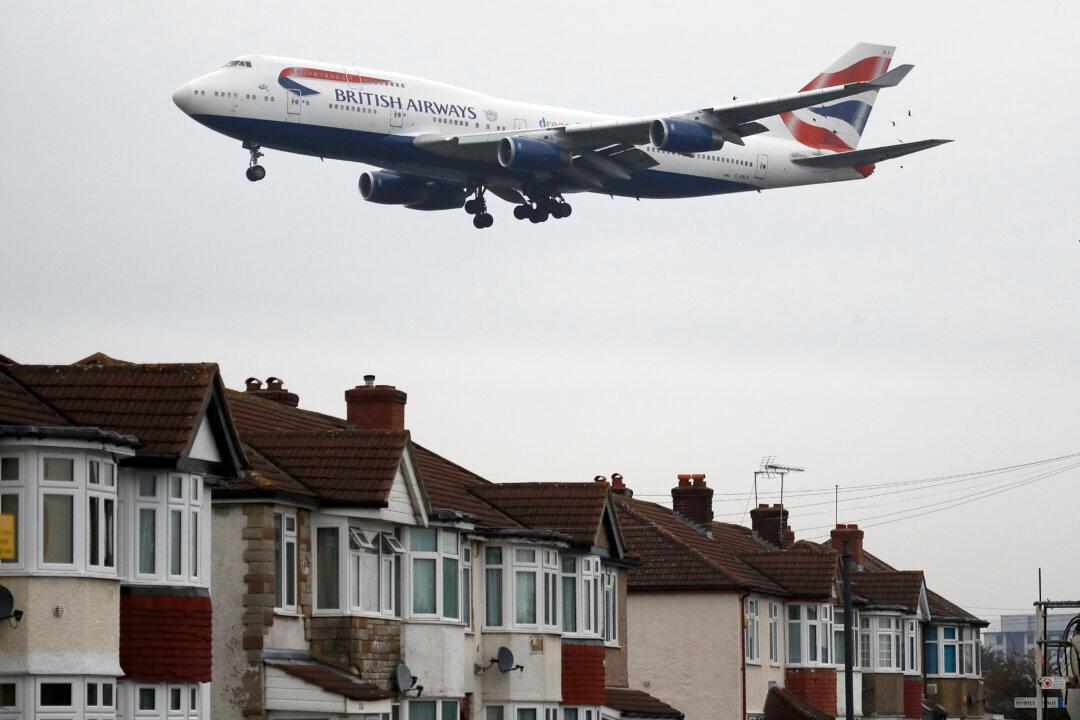
A plane approaches landing over the rooftops of nearby houses at Heathrow Airport in London, Tuesday, Oct. 25, 2016. AP Photo/Frank Augstein
A new limit on emissions for the power sector and aviation industries will come into force next year it has been announced.
On Monday, the government said that under net zero rules, a limit for industries will be required “from selected high energy industries” from 2024.




